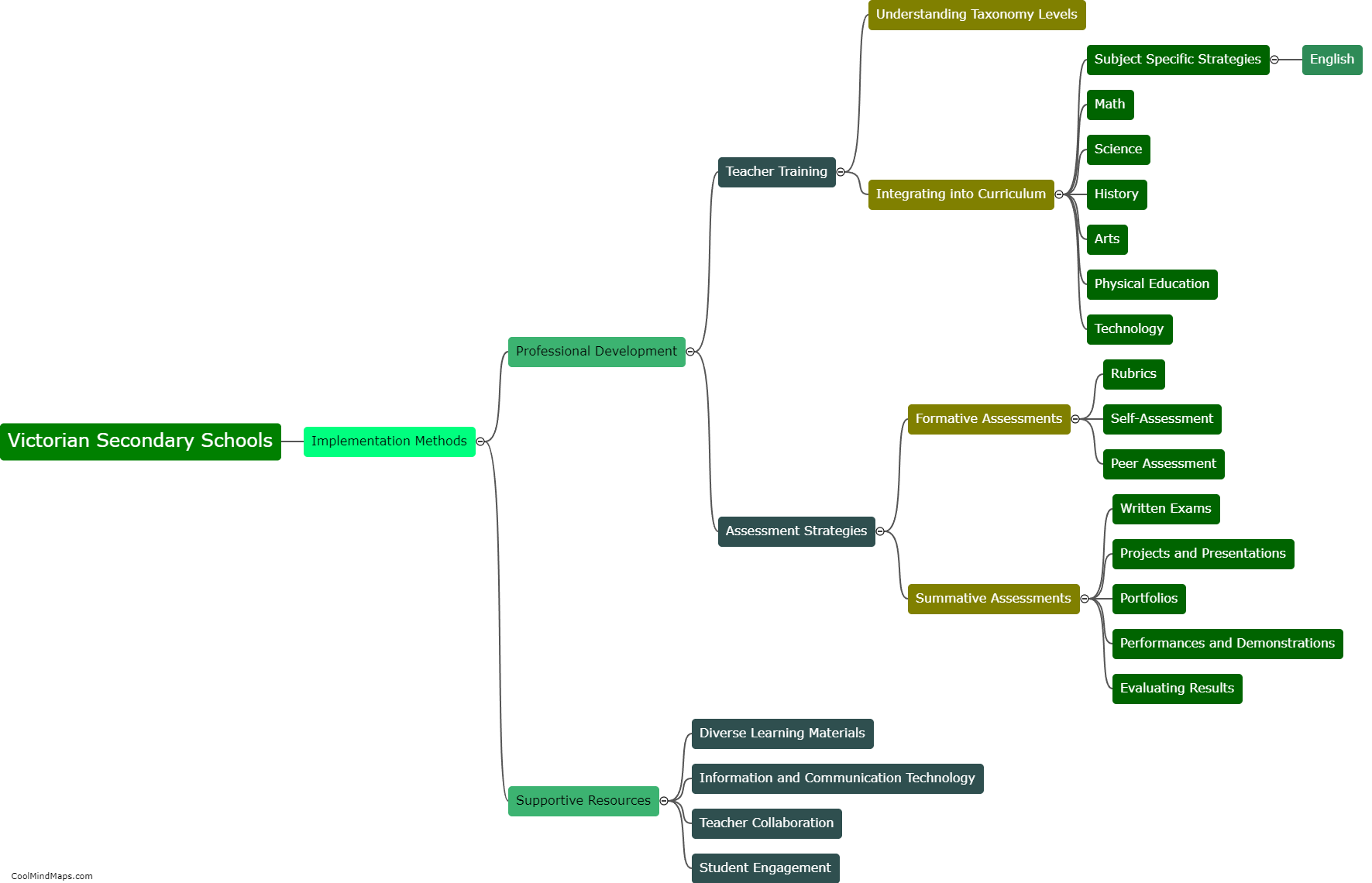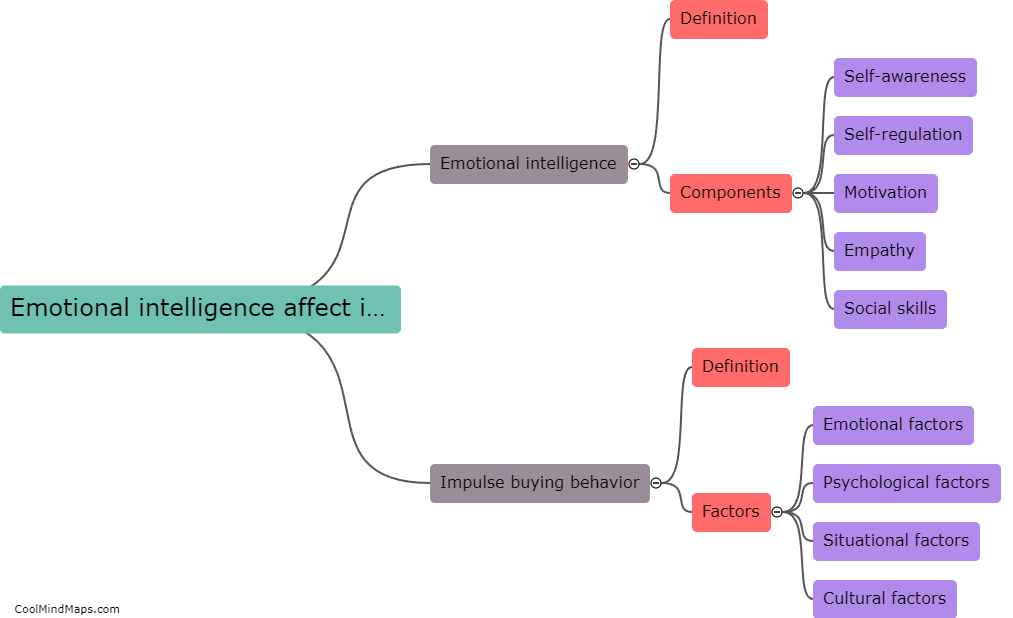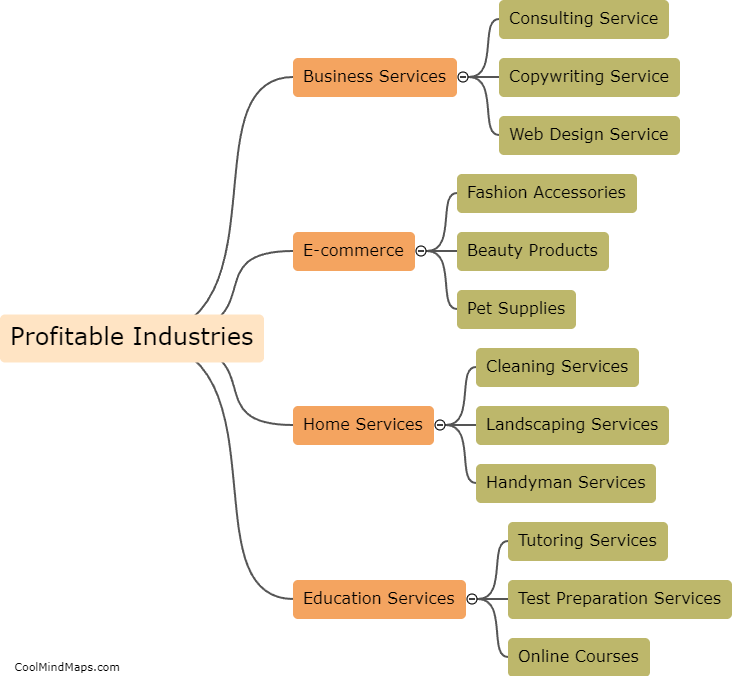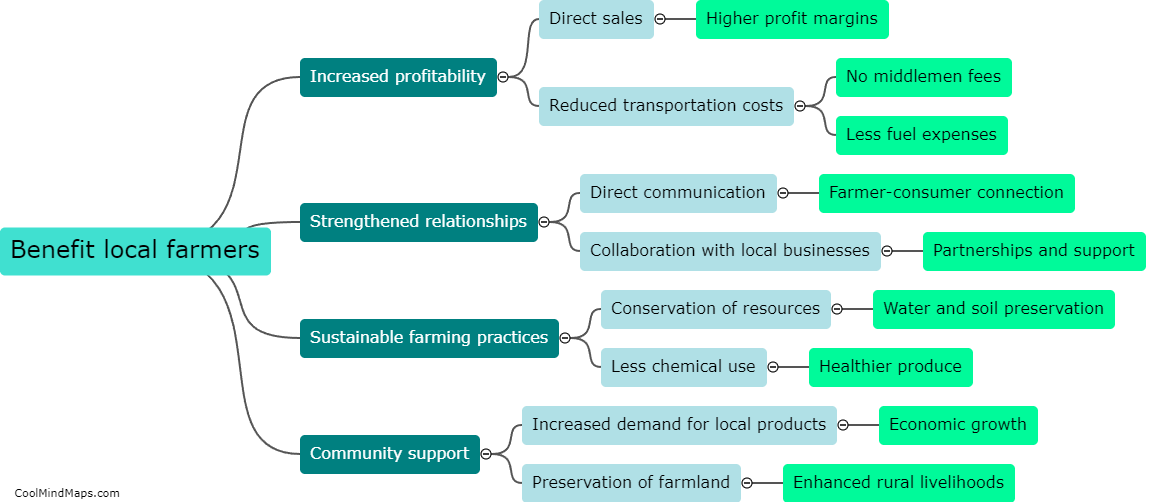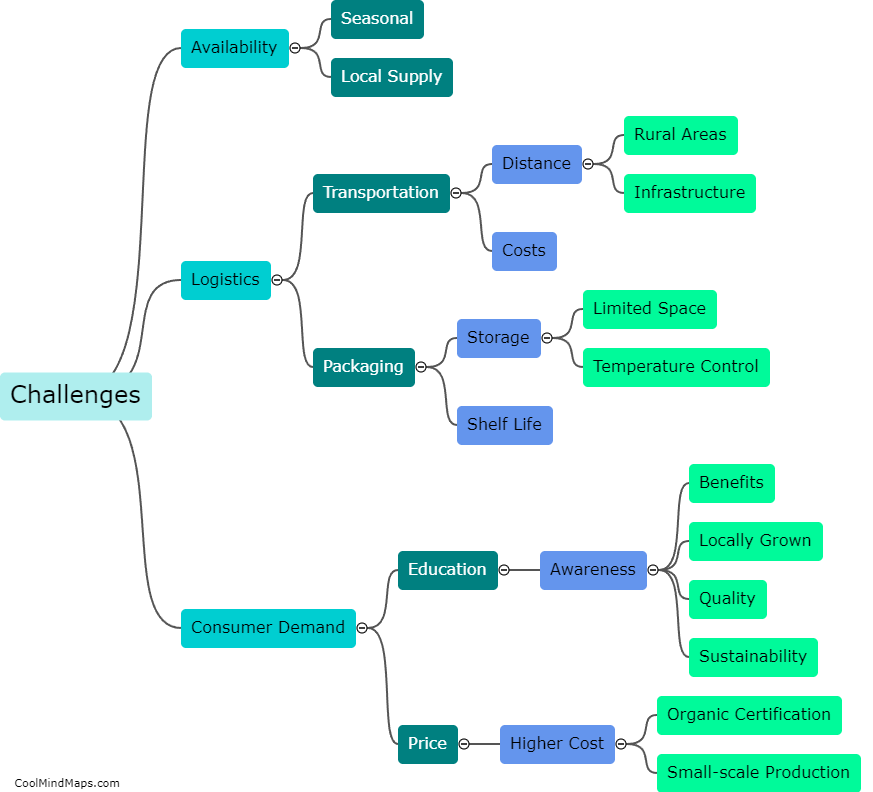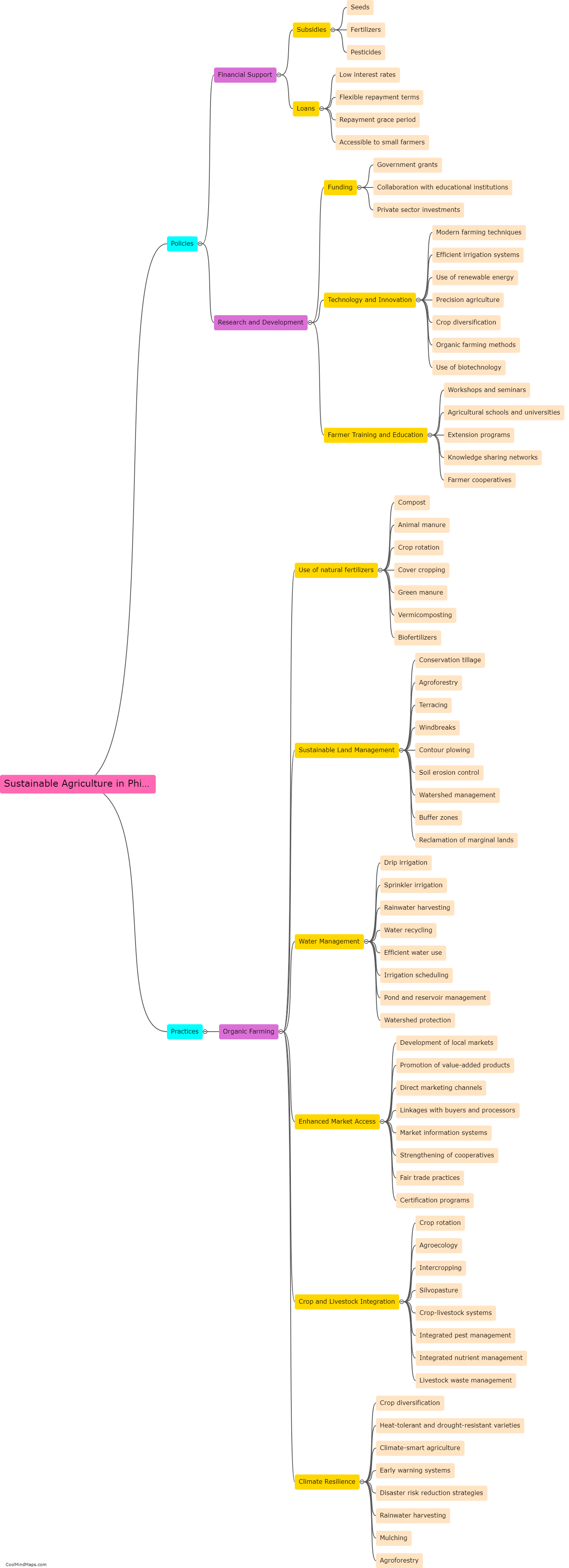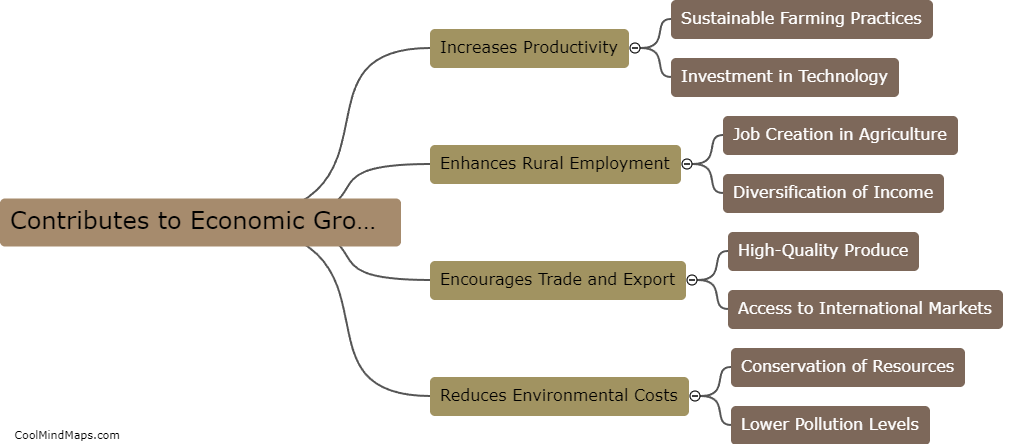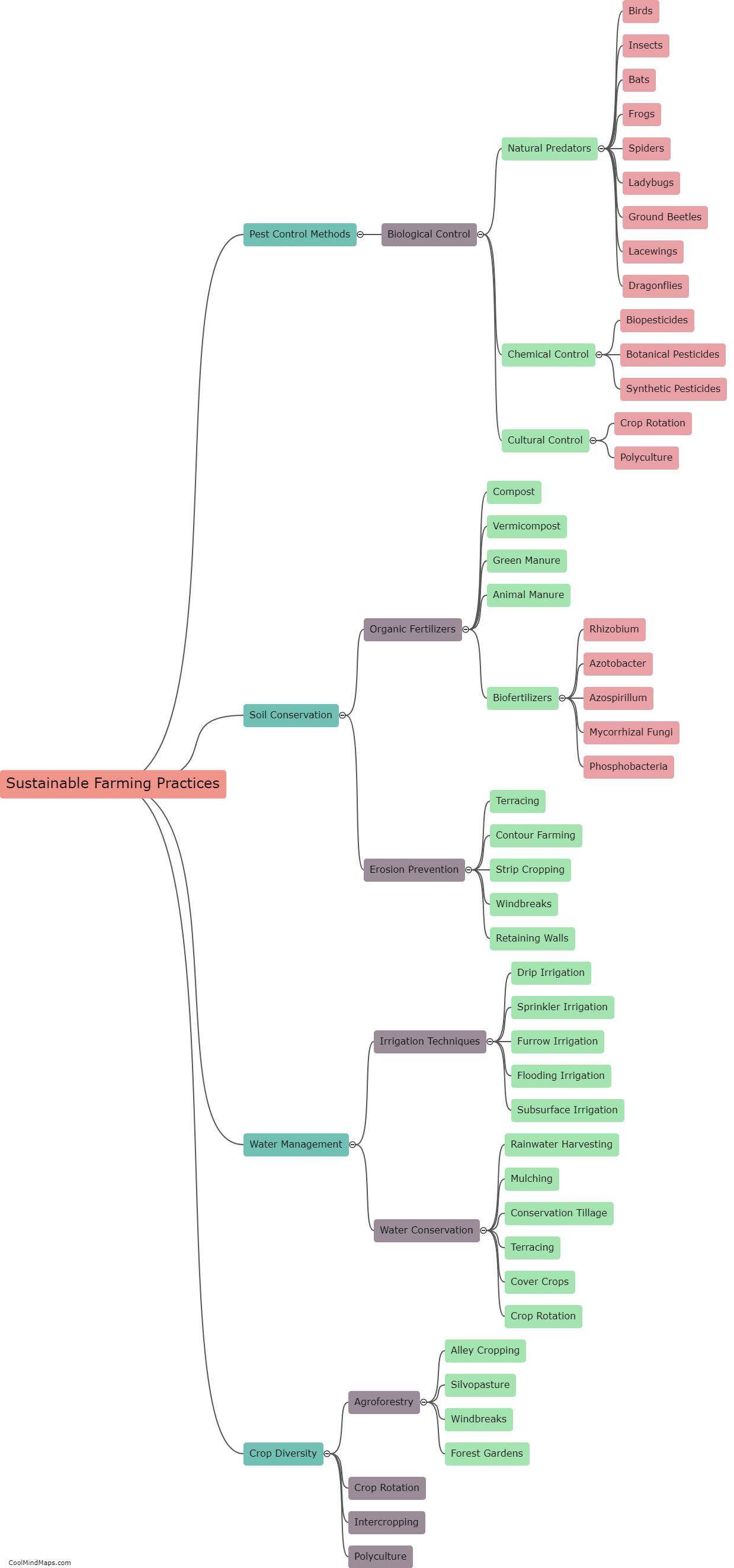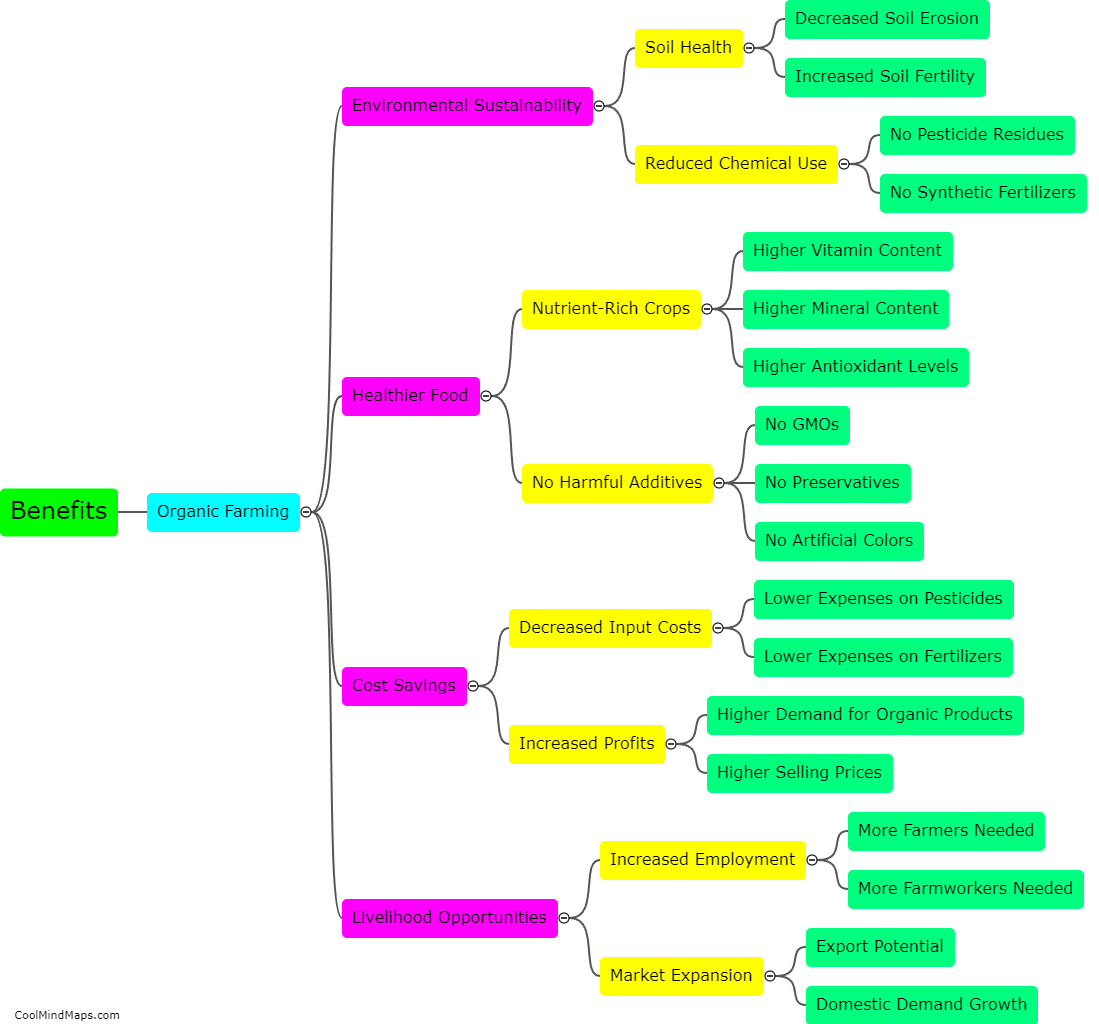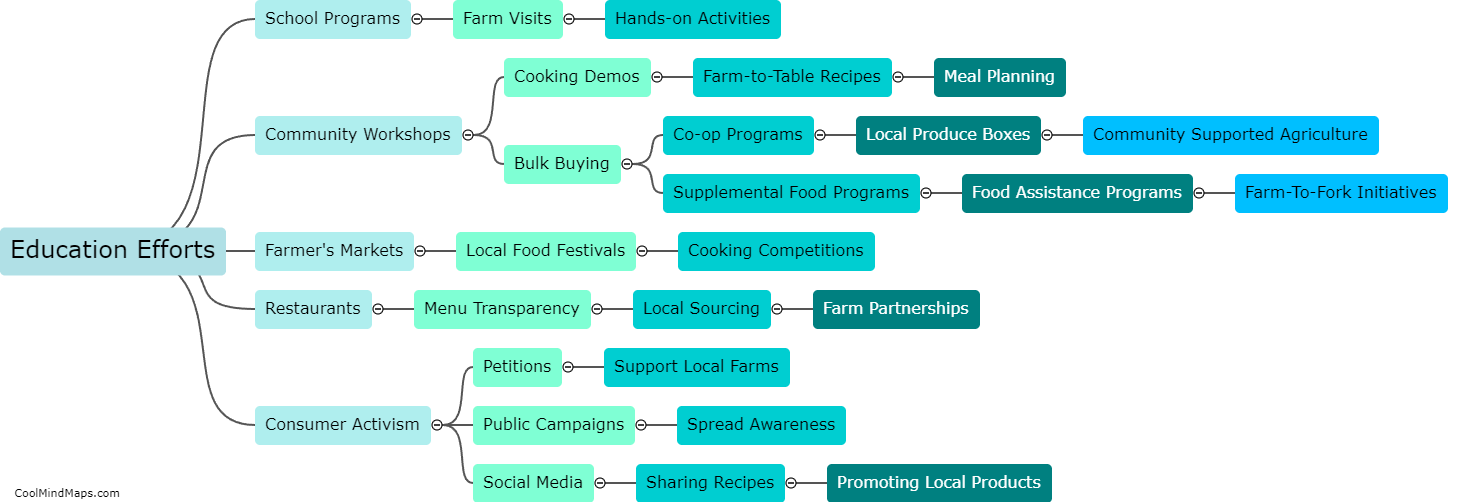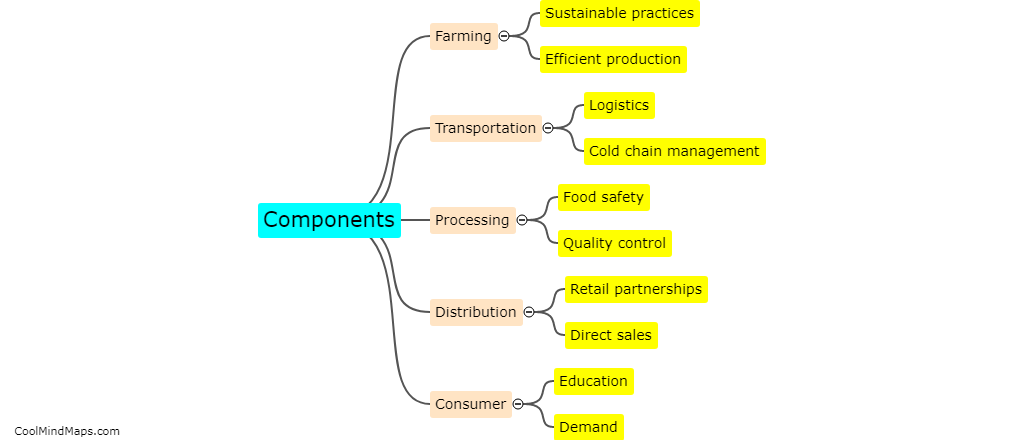What challenges are faced when integrating organic farming in the Philippines?
Integrating organic farming practices in the Philippines faces several challenges. Firstly, there is a lack of awareness and education among farmers regarding the benefits and techniques of organic farming. Many farmers are accustomed to conventional farming methods and may be reluctant to switch to organic practices. Additionally, the availability and accessibility of organic inputs such as pesticides, fertilizers, and seeds are limited, making it difficult for farmers to transition to organic farming. Moreover, certification processes for organic products can be costly and time-consuming, discouraging small-scale farmers from entering the organic market. Lastly, climate change and unpredictable weather patterns pose significant challenges to organic farming, as pest and disease management becomes more challenging without the use of synthetic chemicals. Overall, addressing these challenges and promoting organic farming requires targeted education, policy support, research, and infrastructure development.
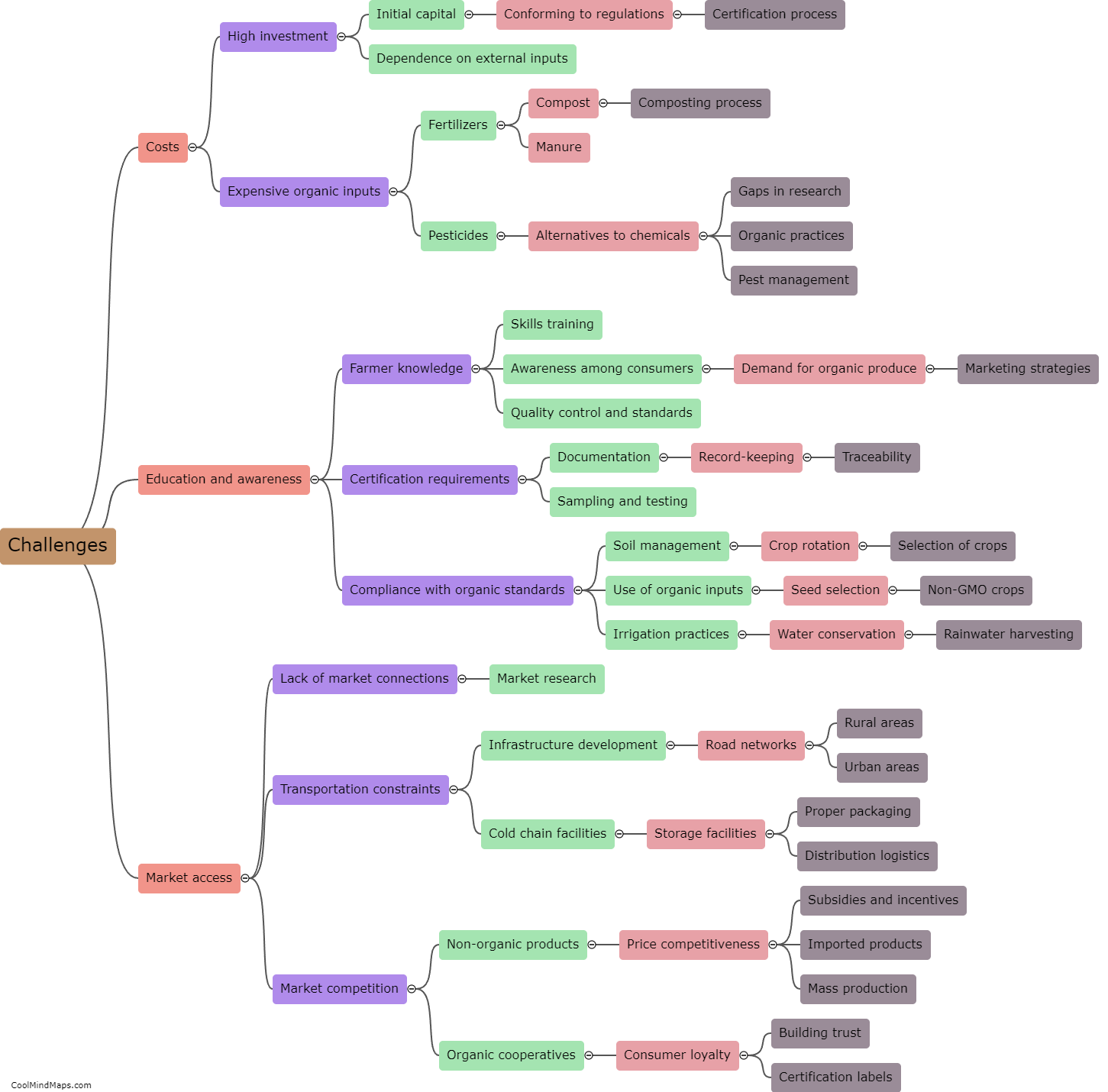
This mind map was published on 2 July 2023 and has been viewed 93 times.
